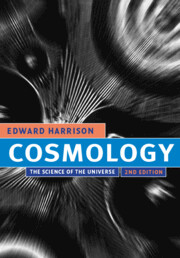Book contents
- Frontmatter
- Contents
- Preface
- Introduction
- PART I
- PART II
- 10 Curved space
- 11 Special relativity
- 12 General relativity
- 13 Black holes
- 14 Expansion of the universe
- 15 Redshifts
- 16 Newtonian cosmology
- 17 The cosmic box
- 18 The many universes
- 19 Observational cosmology
- PART III
- Appendix – Fundamental quantities
- Index
19 - Observational cosmology
from PART II
Published online by Cambridge University Press: 05 June 2012
- Frontmatter
- Contents
- Preface
- Introduction
- PART I
- PART II
- 10 Curved space
- 11 Special relativity
- 12 General relativity
- 13 Black holes
- 14 Expansion of the universe
- 15 Redshifts
- 16 Newtonian cosmology
- 17 The cosmic box
- 18 The many universes
- 19 Observational cosmology
- PART III
- Appendix – Fundamental quantities
- Index
Summary
For the history that I require and design, special care is to be taken that it be of wide range and made to the measure of the universe. For the world is not to be narrowed till it will go into the understanding (which has been done hitherto), but the understanding is to be expanded and opened till it can take in the image of the world.
Francis Bacon (1561–1626), Novum OrganumINTRODUCTION
“Now, what I want is Facts. … Facts alone are wanted in life.”
Mr. Gradgrind in Hard Times by Charles Dickens (1812–1870)Facts about the heavens
We begin on a philosophical note by quoting Arthur Eddington from his book The Expanding Universe: “For the reader resolved to eschew theory and admit only definite observational facts, all astronomical books are banned. There are no purely observational facts about the heavenly bodies. Astronomical measurements are, without exception, measurements of phenomena occurring in a terrestrial observatory or station; it is only by theory that they are translated into knowledge of a universe outside.” Without books and theories our observations of the heavens lack content and significance.
We construct universes that are models of the true Universe. Our longing for absolute truth tempts us to believe that the current universe of our society is the Universe. Each society has its own universe (ours is the physical universe whose principles are discussed in Chapter 8), and each society interprets its observations in accord with the principles of that universe.
- Type
- Chapter
- Information
- CosmologyThe Science of the Universe, pp. 387 - 410Publisher: Cambridge University PressPrint publication year: 2000

